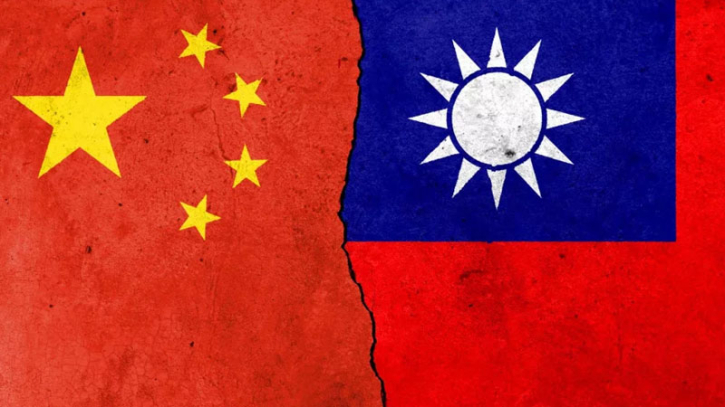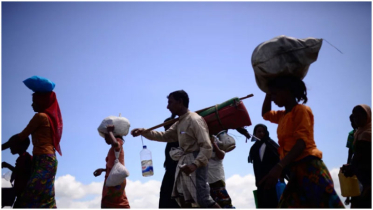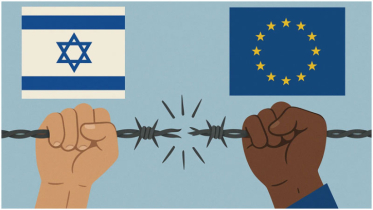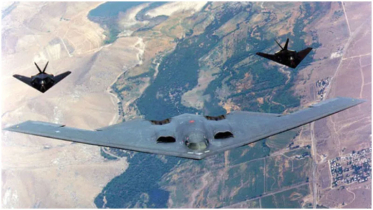China's joint sword exercises and Taiwan tensions

The global community, particularly within the region, has not extended the same level of solidarity to Taiwan as it has to Palestine or the embattled Ukraine, driven often by emotional motives. The escalation in tensions in the Taiwan Strait has coincided with the conflict in Ukraine, with the situation growing increasingly precarious amidst an escalating crisis in the Middle East. Days after Lai Ching-te assumed office as the president of Taiwan, China launched Joint Sword-2024A -- a two-day long provocative military drill spanning the Taiwan strait on May 23 and 24.
Under the prohibition of self-defense, Taiwan stands resolute, cherishing its own democratically elected government, robust military, and distinctive currency. A poster-boy for superior tech and advanced hardware, Taiwan supplies to 90% of the world. The small yet highly productive island adeptly steers its way towards maintaining a trade volume through several means including the production of high-quality bicycles. Yet, amidst its aspirations for prosperity and growth, China's “One China” policy casts a shadow, impeding the island's path to flourish and savour the fruits of its ambitions.
For the uninitiated, Taiwan went through major shifts in the aftermath of the 2022 elections, as the Democratic Progressive Party (DPP) faced unexpected setbacks. Following the disappointing electoral outcome, President Tsai Ing-wen chose to step down as the party's chairwoman. Although her successor, Lai Ching-te, secured victory in the presidential race, the DPP experienced a blow as it lost its legislative majority. This loss of parliamentary support poses formidable challenges for Lai Ching-te's administration, hindering the prompt implementation of proposed reforms, notably including crucial national defense budgets.
Even though the leadership in Taipei showed some positive gestures for a dialogue with China, the CCP turned down almost every possibility. Beijing's stance towards Taiwan remains steadfast, with a preference for candidates aligned with the Nationalist Party, or Kuomintang, which espouses a more conciliatory approach towards China. Accusations of separatism have been leveled against Lai and Tsai both, with China alleging their intentions to stoke military confrontation over Taiwan's sovereignty.
In a bid to exert economic influence, China sometime back urged Taiwanese enterprises to seek listings on Chinese stock exchanges, offering improved conditions for Taiwanese investors and facilitating travel between Taiwan and China. However, Taiwan's status as a separate entity from mainland China since the civil war in 1949 remains a point of contention, with Beijing persistently asserting its claim over the island.
Despite Beijing's efforts to jostle influence, Taiwan's vibrant democracy and robust economy continue to thrive, steadfastly asserting its autonomy and sovereignty on the global stage. As tensions persist between Taiwan and China, the island nation remains resolute in defending its freedoms and democratic values against external pressures.
Following the visit of US House Speaker Nancy Pelosi, the Taiwan Strait became the backdrop for a military exercise encompassing the island. China's provocative actions come as no surprise, mirroring longstanding tensions in the region.
In the circles of the strategic elite, Taiwan is discussed massively. Taiwan has adopted a defensive strategy called “The Porcupine defense strategy,” initially articulated by US Naval War College research professor William S Murray in 2008, found its official adoption by Taiwan in 2017 under the leadership of then-chief of the Taiwanese military forces, Lee Hsi-Ming, who coined it the "Overall Defense Concept."
Embracing this strategic doctrine, Taiwan has meticulously amassed substantial reserves of anti-aircraft, anti-tank, and anti-ship weaponry, alongside a cache of sophisticated armaments including unmanned aerial vehicles (UAVs) and mobile coastal defense cruise missiles (CDCMs). The Island has seen a steady boost in defense expenditure as well. Taiwan has proved that she is brave and bright.
The triumph of the DPP in Taipei has stirred considerable consternation within China, eliciting swift condemnation from Beijing, which has characterized the military exercises as a punitive measure against the incumbent. Such provocative moves by the PLA serve as a stark reminder for nations engaged in the development of military or dual-use infrastructure projects with China. Such partnerships with China, while ostensibly beneficial, may unwittingly serve as conduits for China to fulfill her geo-strategic or military ambitions.
Through strategic leveraging of these infrastructural projects, China could potentially amplify its influence. However, this elevation in influence could also precipitate chaos and instability, ultimately ensnaring the host nation in unforeseen troubles. Hence, countries ought to exercise the utmost prudence when forging agreements with China. The world should trade more with Taiwan directly and show greater solidarity with Taipei, recognizing her determination to preserve autonomy and sovereignty.
The writer is an Indian journalist and foreign policy scholar.
Source: Dhaka Tribune
.png)




